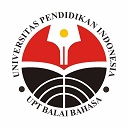Translation Quality Analysis of Japanese Oral Translation (Tsuyaku)
Abstract
The oral translation course at the Japanese Language Education Study Program, Universitas Brawijaya does not impose special requirements for students who want to take it. For this reason, this study aims to analyse the quality of student’s oral translations and to determine the competencies that affect the results of student’s Japanese-Indonesian oral translations. In the translation quality, special parameters are used as measurement tools, which are: accuracy, fluency, and clarity. Meanwhile, the parameters to determine the competence that affects the translation results using the bilingual sub-competence, extralinguistic sub-competence, nation translation sub-competence, instrumental sub-competence, strategic sub-competence, psychological sub-competence. This research uses descriptive qualitative method. The data used in this study were the transcripts of the results of the oral translation exercises from the audio “Nihongo Soumatome Mondai” that was played. The data collection technique uses primary and secondary sources. The analysis in this study used Miles and Huberman theory (reduction, data display, and verification). The result of accuracy parameter is inaccurate and the fluency parameter of the most translated result is fluent. In the clarity parameter, the highest number of translated results is non-acceptable. This shows that although students are fluent, their translation result are not acceptable. Meanwhile, the translation competence that affects the translation results of students who take the tsuuyaku course is the lack of a bilingual sub-competency factor or mastery of the source language of a translator. Although they already had the basics of translation before, however, due to the low bilingual sub-competence, no matter how well the translation theory has been mastered, it is still difficult to produce an accurate and clear translation.
Keywords
Full Text:
PDF (IND)References
Ardi, H. (2009). Kategori Penerjemahan Lisan Suatu Kategori Ulang. Diakses dari https://www.academia.edu/26030708/Kategori_Penerjemahan_Lisan_Suatu_Tinjauan_Ulang_Interpreting_Category_A_critical_review_
Firdaus, E. A. (2016), Kemampuan Penerjemahan Bahasa Perancis Kepariwisataan ke dalam Bahasa Indonesia. (Skripsi). Diakses dari Repository Universitas Pendidikan Indonesia.
Gunawan, I. (2013). Metode Penelitian Kualitatif Teori dan Praktik. Jakarta: Bumi Aksara.
Hasegawa, Y. (2013). The Routledge Course in Japaneses Translation. USA: Routledge.Mukhtar, M. (2013). Metode Praktis Penelitian Deskriptif Kualitatif. Jakarta: GP Press Group.
Maharani, A. (2019). Analisis teknik penerjemahan dan kualitas penerjemahan pada istilah budaya sosial Tiongkok. Prasasti Journal of Linguistics, 4 (1), 10-18. Diakses dari https://jurnal.uns.ac.id/pjl/article/download/11028/20306.
Nababan, M. R. (2003). Teori Menerjemah BS. Yogyakarta: Percetakan Pelajar.
Saehu, A. (2018). Interpreting Teori dan Praktik. Bandung: Nuansa Cendekia.
Suci, R. (2019). Analisis Kesulitan Alumni PS. Pendidikan Bahasa Jepang UNNES yang Berprofesi sebagai Penerjemah. (Skripsi). Diakses dari Repository Universitas Negeri Semarang.
Sugiyono, S. (2015). Memahami Penelitian Kualitatif. Bandung: Alfabeta.
Suryawinata, Z. & Hariyanto, S. (2003). Translation Bahasa, Teori & Penuntun Praktis Menerjemahkan. Yogyakarta: Kanisius.
Suyono, A & Hariyanto, S. (2014). Teknologi Informasi dan Profesi Penerjemah. Diakses dari https://jlt-polinema.org/?p=770.
DOI: https://doi.org/10.17509/japanedu.v6i1.32082
Refbacks
- There are currently no refbacks.
Copyright (c) 2021 JAPANEDU: Jurnal Pendidikan dan Pengajaran Bahasa Jepang

This work is licensed under a Creative Commons Attribution-ShareAlike 4.0 International License.
 Published by:
Published by: Department of Japanese Language Education, Faculty of Language and Literature Education
Universitas Pendidikan Indonesia
 Online ISSN: Online ISSN:2528-5548 |

JAPANEDU: Jurnal Pendidikan dan Pengajaran Bahasa Jepang (e-ISSN:2528-5548) lisenced under a Creative Commons Attribution-ShareAlike 4.0 Internasional (CC BY-SA 4.0)


